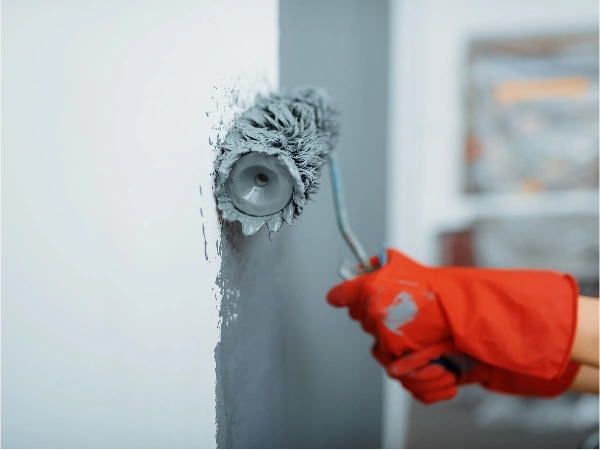Physical Address
304 North Cardinal St.
Dorchester Center, MA 02124
Are you tired of staring at boring, faded walls? Or perhaps you’re looking to enhance your home’s curb appeal but don’t know where to start? Painting your home can seem daunting, but with the right preparation and techniques, you can accomplish a flawless finish that will leave your spaces looking stunning. In this article, we’ll dive into expert tips for painting both the interior and exterior of your home, ensuring you achieve results that will not only impress but also last.
Preparation is everything when it comes to painting. Start by cleaning your surfaces thoroughly. Dirt, grease, and dust can prevent paint from adhering properly. For interiors, a mixture of water and mild detergent should suffice. For exteriors, consider using a pressure washer.
Repairing any damage is equally crucial. Fill in holes with spackle for interior walls and exterior filler for outside surfaces. Sand the areas smooth once dried.
Selecting the right paint is fundamental. Opt for high-quality options; they might be more expensive, but they offer superior coverage and durability. For your exterior, choose a paint that withstands weather changes. For interior walls, paints with low volatile organic compounds (VOCs) are a healthier choice.
Invest in good brushes and rollers. Synthetic brushes work best with latex paints, while natural-bristle brushes are ideal for oil-based paints. Rollers with different naps (thickness of the roller cover) suit various textures and surfaces.
Protect the areas you don’t want to be painted. Use painter’s tape to cover moldings, switches, and trim. Lay down drop cloths to protect your floors and furniture. Take your time to tape accurately; a clean edge makes a huge difference in achieving a professional look.

Selecting the right paint color can set the mood in your home. Test samples on your walls and observe them at different times of the day to see how light affects the color. Consider the paint’s finish; satin and eggshell are great for most interior walls, providing a balance between gloss and easy maintenance.
Always use a primer before applying your paint. Primer covers imperfections and provides a good base for the paint to adhere to. This is particularly important in areas with high moisture, such as bathrooms and kitchens, where durability is key.
Start by cutting in the edges with a brush before filling the main areas with a roller. Work in small sections and maintain a wet edge to avoid lap marks. Apply at least two coats for an even and clean finish, allowing ample drying time between each coat.
The weather plays a significant role in exterior painting. Avoid painting on very hot days, in direct sunlight, or in windy conditions, as the paint can dry too quickly and not adhere properly. Ideally, a calm, cloudy day with moderate temperatures is perfect for exterior painting.
Similar to interior painting, start with corners and edges using a brush, then fill in larger areas with a roller or sprayer. Work top to bottom to prevent streaks. For areas subjected to environmental stress, like doors and windows, consider applying a third coat.
After your paint job is complete, performing periodic maintenance can help prolong its life. Clean exterior walls at least once a year and inspect for any damage. Touch-up paint as necessary, addressing any issues before they develop into larger problems.
A well-painted home can significantly enhance curb appeal and, consequently, your property’s value. Fresh paint helps protect your home’s surfaces and maintain its structural integrity, making it more attractive to potential buyers.
The best ways to prepare walls for painting include cleaning them thoroughly, repairing any cracks or holes, sanding rough spots, and applying primer. Proper preparation ensures that paint adheres well and provides a uniform finish.
Choosing the right paint is crucial as it determines the durability and finish of your paint job. For interiors, low-VOC paints provide a healthier indoor environment, while high-quality exterior paints can withstand weather elements and prolong protection.
To achieve a professional finish, focus on thorough preparation, use high-quality paints and tools, apply primer, and adhere to proper painting techniques. Take your time with each step to ensure a clean, smooth, and even coat.
Painting your home’s interior and exterior might seem like a massive task, but with careful preparation, the right tools, and expert techniques, you can achieve a stunning result. Whether you’re updating your living room or overhauling your home’s exterior, these tips will help you every step of the way. Remember, a great paint job not only beautifies your home but also adds value and protection. So roll up your sleeves and get started on transforming your space today!
Content Source
This Old House, Bob Vila, Family Handyman, The Spruce, HomeAdvisor, Angi (formerly Angie’s List), Sherwin-Williams, Benjamin Moore, Behr Paint, National Association of Home Builders (NAHB), Paint Quality Institute.



